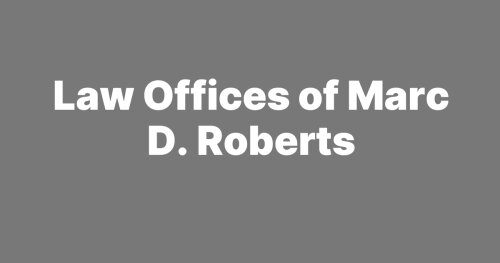Best Juvenile Law Lawyers in Kansas
Share your needs with us, get contacted by law firms.
Free. Takes 2 min.
Or refine your search by selecting a city:
List of the best lawyers in Kansas, United States
About Juvenile Law in Kansas, United States
Juvenile law in Kansas refers to legal principles and procedures that apply to individuals under the age of 18 who are involved in the court system, whether due to delinquent acts (crimes committed by minors), status offenses (acts that are only unlawful because of a person's age, like truancy), or matters of child welfare and protection. The primary goal of juvenile law is to rehabilitate and guide young people rather than to punish them as adults. The Kansas juvenile justice system is designed to protect minors' rights while involving their families, schools, and communities in the corrective process. Kansas law recognizes the unique needs of minors and aims to offer them a chance at reform and a brighter future, balancing accountability with opportunities for growth.
Why You May Need a Lawyer
Navigating the juvenile justice system can be complex and emotionally taxing for both minors and their families. Common situations in which people may require legal help in juvenile law include:
- A child being accused of committing a criminal offense
- Facing allegations of truancy, curfew violations, or running away
- Cases involving child abuse or neglect by parents or guardians
- Dependency or status as a Child in Need of Care (CINC)
- Issues related to foster care, guardianships, or adoption
- Questions about expungement of juvenile records
In these situations, a lawyer experienced in Kansas juvenile law can provide essential assistance. Legal counsel can help protect a child's rights, ensure fair treatment, and explain the legal process to families.
Local Laws Overview
Key aspects of juvenile law in Kansas include:
- Age of Jurisdiction: The juvenile courts in Kansas typically handle cases involving individuals under 18 years old. In some situations, juveniles aged 14 or older can be tried as adults for very serious crimes.
- Types of Proceedings: Juvenile courts deal with delinquency, status offenses, and child in need of care cases. Each has its own procedures and possible outcomes.
- Juvenile Rights: Minors have the right to an attorney, the right against self-incrimination, and the right to a fair hearing. Courts are required to explain these rights to both the juvenile and their guardians.
- Records and Privacy: Juvenile records are generally confidential in Kansas. However, some information may be released to schools, victims, or law enforcement, and certain felonies may become part of the public record.
- Detention: When a juvenile is taken into custody, Kansas law requires a hearing within 48 hours to determine whether the minor should remain in detention.
- Rehabilitation Focus: The primary emphasis in Kansas is on rehabilitation and educational or community-based interventions rather than incarceration, when possible.
- Parental Involvement: Parents or guardians are typically required to participate in hearings and may be responsible for certain costs or court-ordered programs.
Frequently Asked Questions
What is the difference between a juvenile delinquency case and a status offense?
A juvenile delinquency case involves a minor accused of breaking a law that would be considered a crime if committed by an adult, while a status offense involves behaviors that are only illegal because the offender is under 18, such as skipping school or violating curfew.
Can a juvenile be tried as an adult in Kansas?
Yes, in certain circumstances. If the juvenile is 14 or older and is accused of a serious felony, the district attorney can request that the case be transferred to adult court, where the penalties are typically more severe.
Are juvenile records in Kansas automatically sealed when a person turns 18?
Not automatically. While many juvenile records are confidential, expungement-removal of records-requires filing a request and attending a hearing. Some records related to serious offenses may remain accessible to some agencies or the public.
What rights do juveniles have if detained by law enforcement?
Juveniles have the right to remain silent, the right to a lawyer, and the right to have their parent or guardian notified. They must be informed of these rights upon being taken into custody.
How quickly does a detention hearing take place for juveniles in Kansas?
A detention hearing must occur within 48 hours of the juvenile being taken into custody, not counting weekends and holidays. At this hearing, a judge will decide whether continued detention is necessary.
Can parents attend all juvenile court proceedings?
Generally yes, parents or guardians have the right to attend. In most cases, their presence is required. Juvenile court hearings are usually closed to the public to maintain confidentiality.
What are common consequences for juveniles found delinquent in Kansas?
Depending on the nature of the offense, consequences can include probation, counseling, community service, restitution, educational programs, or placement in a juvenile facility.
What if a child is accused of abuse or neglect at home?
These matters are handled by the court as Child in Need of Care (CINC) cases. The court will investigate the situation and may appoint a guardian ad litem to represent the child, as well as consider removing the child from the home if necessary for safety.
How does Kansas handle truancy and school attendance problems?
Kansas law requires children between ages 7 and 18 to attend school. Chronic truancy can result in a status offense case in juvenile court, leading to interventions focused on getting the child back in school.
How can a lawyer help in a Kansas juvenile case?
A lawyer can protect the juvenile's legal rights, explain each stage of the process, represent the minor in court, negotiate with prosecutors, advocate for alternative dispositions, and guide families through steps to seal or expunge records when eligible.
Additional Resources
Below are some helpful resources for individuals seeking information or assistance in juvenile law matters in Kansas:
- Kansas Judicial Branch - Juvenile Court Information
- Kansas Department for Children and Families (DCF)
- Kansas Legal Services (offers legal aid and resource guides)
- Kansas Office of the State Public Defender (for indigent defense)
- Local county attorney or district court websites for specific procedural information
- National Juvenile Defender Center (NJDC)
- Local bar associations and youth advocacy organizations
Next Steps
If you or your child is facing involvement with the juvenile justice system in Kansas, acting quickly and thoughtfully is important. Here are recommended next steps:
- Consult with a lawyer who has experience in Kansas juvenile law to understand your rights and the options available
- Gather any relevant paperwork or records before your meeting (such as notices from law enforcement or the court)
- Attend all court hearings and required meetings on time, and ensure your child does as well
- Stay in communication with your attorney for updates and guidance throughout the process
- Ask about opportunities for diversion, community service, or educational programs to minimize potential negative outcomes
- If financial resources are limited, inquire about court appointed counsel or legal aid organizations that may be able to help
Remember, the juvenile justice system in Kansas is designed with a focus on rehabilitation. Taking an active role in the process and seeking qualified legal advice can make a significant difference in the outcome for your child and your family.
Lawzana helps you find the best lawyers and law firms in Kansas through a curated and pre-screened list of qualified legal professionals. Our platform offers rankings and detailed profiles of attorneys and law firms, allowing you to compare based on practice areas, including Juvenile Law, experience, and client feedback.
Each profile includes a description of the firm's areas of practice, client reviews, team members and partners, year of establishment, spoken languages, office locations, contact information, social media presence, and any published articles or resources. Most firms on our platform speak English and are experienced in both local and international legal matters.
Get a quote from top-rated law firms in Kansas, United States — quickly, securely, and without unnecessary hassle.
Disclaimer:
The information provided on this page is for general informational purposes only and does not constitute legal advice. While we strive to ensure the accuracy and relevance of the content, legal information may change over time, and interpretations of the law can vary. You should always consult with a qualified legal professional for advice specific to your situation.
We disclaim all liability for actions taken or not taken based on the content of this page. If you believe any information is incorrect or outdated, please contact us, and we will review and update it where appropriate.
Browse juvenile law law firms by city in Kansas
Refine your search by selecting a city.











